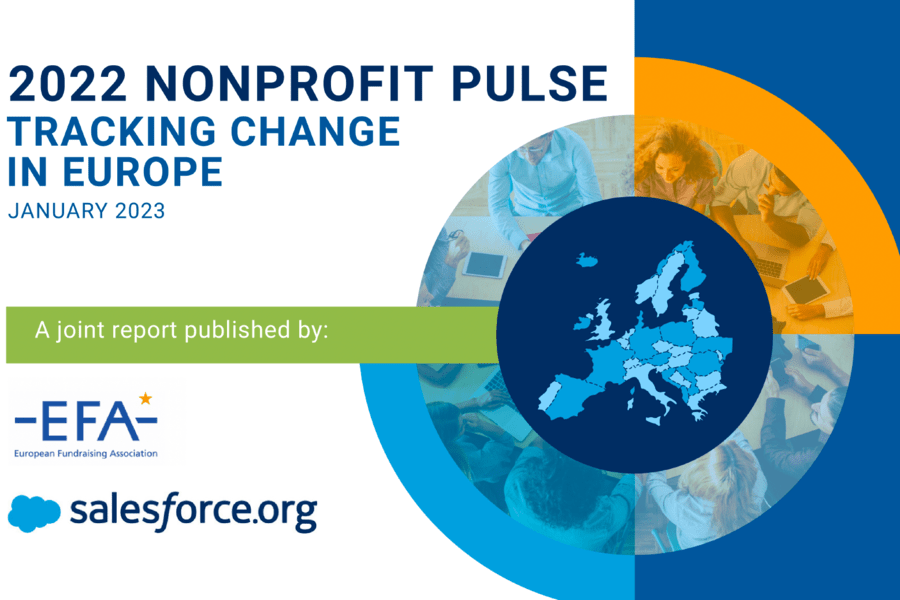Raising sufficient funds a key challenge for nonprofits across Europe, report shows

Workload, raising sufficient funds, and supporting staff and their wellbeing are the biggest challenges for nonprofits across Europe according to a new report.
The Nonprofit Pulse 2024 report, by the European Fundraising Association, the Chartered Institute of Fundraising and Salesforce, is based on a survey of 671 senior representatives of nonprofit organisations from 20 nations across Europe in November 2023. 27% of respondents came from the UK, followed by Germany (21%), France (18%), and Netherlands (17%).
Falling donations & supporter numbers
It found that just 6% of respondents across Europe were unaffected by the cost of living crisis in 2023, with a fifth (20%) concerned about the future. 28% of those surveyed said they saw demand for services increase, while 28% saw income from donations fall, and 26% experienced a drop in supporter numbers.
Advertisement
Workload & staff wellbeing key issues
The challenges saw 20% using their reserves, while 28% had to let staff go. Increasing demand for services coupled with reduced staffing levels and resources meant workload and staff wellbeing was also impacted, and 37% and 26% of the survey respondents respectively highlighted these as key issues.
Charities responding with greater focus on digital, diversification, & collaboration
In response, the survey found that fundraising strategy stayed the same for just 8% of respondents. Almost a quarter (23%) focused on further digital development and channel diversification, while collaborating with other nonprofits became one of the top areas of focus, with 22% saying they were working more with others.
AI an area of interest but concerns remain
The survey also asked for respondents’ views and experiences regarding AI and found that 13% were excited and already using it, with a further 22% ‘optimistic but cautious’. 15% however said they didn’t see their organisation using AI at all. Key concerns highlighted for both generative and predictive AI were data security and privacy, loss of human expertise and job displacement.
On AI, Lori Freeman, Vice President & General Manager of Nonprofits, Salesforce, commented:
“AI represents a tremendous opportunity for nonprofits of all sizes and will be the key to reducing workloads for overburdened staff, improving fundraising outcomes, accelerating mission impact, and so much more. But successful adoption in the sector depends on the use of trusted AI that can help nonprofits safely take advantage of their data with confidence. By embracing AI and educating employees on how to use it in a trusted and ethical way, nonprofits have a once-in-a-generation opportunity to modernise their operations and impact.”
Commenting on the overall findings, Rob Cope, Executive Director, Membership & Operations, Chartered Institute of Fundraising, added:
“The nonprofit sector is currently facing its biggest collective set of opportunities, challenges and risks in our lifetime. It’s a perfect storm of rising demand, growing workload and squeezed income that means together, as a sector, we must answer the big question of how we can all do more with less. One of the most exciting areas of opportunity has to be in new technologies and AI, which is a critical lever of change that we cannot ignore.”
Charlotte Rydh, EFA President, and Secretary General of Giva Sverige in Sweden, commented:
“There is immense value in working together and sharing expertise and experience. This is something that is echoed in this year’s survey findings, which show rising collaboration between nonprofits. Having this pan-European view of the nonprofit sector, with its trends, challenges and opportunities, helps us all by enabling individual nonprofits to benchmark, as well as informing the work of national fundraising associations, networks like our own, and others supporting the sector.”





